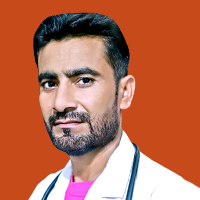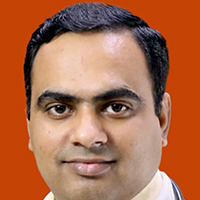

Successful Treatments
Clinics
Doctors
What is Type 1 Diabetes?
Type 1 diabetes is a chronic disease in which the immune system, through some unknown stimulus, mistakenly attacks and destroys the beta cells of the pancreas responsible for the production of insulin. Insulin is a hormone produced by the pancreas that takes the main role in facilitating entry into the cells of the body glucose derived from the food digested in the stomach. Because of this shortage in the production of insulin by the pancreas, the levels of glucose in the blood increase, reflecting high levels of sugar in the blood.
The consequences of this persistent high blood sugar or hyperglycemia include a variety of health complications. Prolonged inflammation of the blood vessels and nerves can lead to cardiovascular disease, neuropathy, nephropathy, and retinopathy. Management of Type 1 diabetes involves replacing the deficient hormone, frequent blood glucose monitoring for sugar monitoring, and lifestyle changes, including diet and exercise, which will help keep the blood sugar stable and reduce risks of complications.
Symptoms
Increased Thirst
Increased Thirst: High levels of blood sugar cause dehydration, which is responsible for excessive thirst and dry mouth. The kidneys attempt to pass out the extra glucose by producing more amounts of urine, leading to enhanced fluid loss and persistent thirst.
Frequent Urination
Frequent Urination: This symptom is medically termed polyuria. The body tries to remove excess glucose through urine. They may feel the urge for more frequent visits to the bathroom. Some symptoms may show that blood sugar is out of control.
Extreme Fatigue
Extreme Fatigue: High blood sugar may affect how well the body uses glucose to produce energy. In such cases, an individual could feel extremely tired or weak. There are days when doing anything seems absolutely exhausting due to a poor conversion of energy.
Unintended Weight Loss
Unintended Weight Loss: Despite normal or even increased consumption of food, individuals suffering from type 1 diabetes tend to lose weight. This could be explained by the breakdown of fat and muscles into energy because the body fails to utilise glucose appropriately.
Blurred Vision
Blurred Vision: High levels of blood sugar may cause a shift in fluid in and out of the lens of the eye, which can cause blurred vision. This symptom may resolve depending on blood glucose levels and perhaps will resolve as glucose levels become more controlled.
Increased Hunger
Increased Hunger: Severe and chronic hunger can lead to a situation where, due to polyphagia, the body cannot use glucose from food appropriately. The cells are not getting the energy required, and hence, one eats frequently.
Slow-Healing Wounds
Slow-Healing Wounds: Severe and chronic hunger can lead to a situation where, due to polyphagia, the body cannot use glucose from food appropriately. The cells are not getting the energy required, and hence, one eats frequently.
Irritability
Irritability: Mood swings or irritability can easily be caused by fluctuations in blood sugar levels. The body struggles to maintain the blood glucose level, which influences mood and emotional stability, thus leading to irritability.
Ayurvedic Treatment for Type 1 Diabetes
Type 1 diabetes treatment, according to Ayurveda, involves a few key elements which work together with conventional therapies. Ayurvedic Treatment for type 1 diabetes include:
- Herbal Remedies: Traditionally, Ayurvedic herbs said to help regulate blood sugar include bitter melon (Karela), fenugreek (Methi), Indian gooseberry (Amla), and Gymnema Sylvestre (Gurmar). These have traditionally been claimed to enhance insulin sensitivity, lower blood sugar, and promote general metabolic harmony.
- Dietary Guidelines: According to Ayurveda, a diet and mode of life should be planned according to the constitution of a person, called Prakriti. Whole grains, legumes, fresh vegetables, and bitter foods in large quantities are advisable for individuals for an effective ayurvedic treatment of type 1 diabetes. Keeping away from junk foods, refined sugars, and excess fat will also maintain blood glucose levels. Many Ayurvedic literature recommend taking small and frequent meals to stabilise blood sugar.
- Lifestyle Modifications: The disease can be managed with a healthy lifestyle. Doing yoga or regular walking, Pranayama, and meditation are recommended for the good health of one's body and mind. This regular physical activity would help increase insulin sensitivity and reduce stress, which is considered to be one of the causative factors of fluctuations in blood sugar levels.
- Detoxification Therapies (Panchakarma): Detoxification therapies such as Panchakarma are recommended, like Virechana (purgation) or Basti (medicated enema), to detoxify the body and balance the doshas. These procedures are designed to clean the toxins, Ama, from the body, supposedly exacerbating diabetes, thus helping to improve a person's general health.
- Mental and Emotional Well-being: Ayurveda gives ample importance to mental health in type 1 diabetes management. Meditation, mindfulness, and management of emotional stress are critical in maintaining hormonal balance and preventing spikes in blood sugar levels, according to science.
Professional Ayurvedic treatment of Type 1 Diabetes requires consultancy from professionals. Jiva Ayurveda has always been one of the leaders in holistic health solutions, individualised Ayurvedic treatments, and lifestyle counselling that are tailored to the unique constitutions of patients. Experienced Ayurvedic doctors work in coordination with conventional treatments in order to provide each and everyone with comprehensive management of Type 1 diabetes.
Importance of Diet and Exercise in Managing Type 1 Diabetes
A proper diet and an adequate amount of exercise can enable the management of type 1 diabetes. Both play a vital role in blood sugar management and the maintenance of overall health.
Diet:
- Carbohydrate Counting: Because carbohydrates directly impact blood sugar levels, people with type 1 diabetes count them so that their insulin can match the food intake. This helps maintain appropriate blood sugar levels throughout the day.
- Balanced Meals: A healthy diet consists of all foods: fruits, vegetables, whole grains, lean proteins, and healthy fats. Such foods provide all essential nutrients and help maintain blood sugar stability. Whole grains are digested more slowly and, therefore, do not raise blood sugar, while lean proteins and healthy fats create the same effect because they are digested slowly and provide prolonged energy without raising glucose significantly.
- Regular Meals and Snacks: Eating at consistent times each day prevents blood sugar from increasing and assists insulin in performing its function. Regular meals reduce the risk of high and low blood sugar.
Exercise:
- Consistency in Exercise: Regular aerobic exercise, such as walking or cycling, improves sensitivity to insulin and increases the tendency of blood sugar levels to decrease. Regular weekly exercise can be of great help in controlling glucose levels and maintaining improved physical fitness.
- Blood Sugar Monitoring During Exercise: Blood glucose monitoring prior to, during, and after exercise is one way of preventing hypoglycemia or low blood sugar. This can be done to ensure that proper food intake or insulin levels can be adjusted in a timely manner to maintain the levels within the normal range.
Hydration and Nutrition: Maintaining hydration and adjusting carbohydrate intake during the course of physical activity serves to ensure the body has enough fuel to support the exercise without allowing the blood sugar levels to dip too low.
FAQs
Type 1 diabetes is caused by an autoimmune reaction that destroys the insulin-producing beta cells in the pancreas. The exact cause is unknown but may involve genetic and environmental factors.
Currently, it is not known how to prevent type 1 diabetes. Researchers continue to study the causes of the disease, as well as ways to prevent or delay its onset.
No, these are different types of diabetes. Type 1 is an autoimmune disease where the body does not produce insulin, while type 2 is an insulin-resistant diabetes characterised by slow destruction of the ability to produce insulin.
Yes, many with type 1 diabetes have normal, healthy lives provided there is appropriate management of insulin, diet, and lifestyle.
The frequency of blood glucose checks varies but is typically multiple times a day, including before and after meals and before and after exercise.
For high blood sugar, take insulin as your healthcare provider recommends. Drink more water. If your blood sugar level is low, eat quick-acting carbohydrates such as glucose tablets, juice, or candy.
No, the treatment of type 1 diabetes requires insulin therapy, as the pancreas of a patient does not produce insulin.
Insulin and food intake should be balanced throughout the exercise to avoid hypoglycemia or hyperglycemia. Blood glucose levels should be monitored before, during, and after exercise.
A diabetes educator is a health professional who provides education on the management of diabetes, insulin and blood glucose monitoring equipment, healthy eating and exercise, and how to cope with diabetes. Diabetes educators can also provide individualised support and education.
Ayurveda, being very cognizant of the interaction between mind and body, prescribes meditation, mindfulness, and stress management techniques to ease the emotional burden that one has to bear with Type 1 diabetes. Reduced levels of stress would bring about positive results on blood sugar levels and improve overall well-being.
Top Ayurveda Doctors
Our Happy Patients
Blogs
Home Remedies
Related Disease
- Ayurvedic Treatment for Obesity
- Thyroid Treatment In Ayurveda
- Ayurvedic Treatment for Diabetes
- Ayurvedic Treatment For Type 1 Diabetes
- Ayurvedic Treatment for Hypoglycemia
- Ayurvedic Treatment for Hyperglycemia
- Get Ayurvedic Treatment For Prediabetes
- Ayurvedic Treatment for Diabetic Neuropathy
- Ayurvedic Treatment for Gynecomastia
- Ayurvedic Treatment for Hernia
- Ayurvedic Treatment for Gangrene
- Ayurvedic Treatment for Weight Loss
Latest Blogs
- 10.6 से 6.2 तक की गिरावट—Ayurveda ने Diabetes Management में कैसे दिखाई ताकत
- Disk Bulge की वजह से चलना बंद हो गया था—Ayurveda ने कैसे दोबारा खड़ा होने की ताकत दी
- High Diabetes रिपोर्ट ने डरा दिया था—Ayurveda ने बिना आजीवन औषधियाँ के दिखाया नया रास्ता
- 65 की उम्र में भी नींद नहीं आती थी—जीवा आयुर्वेद की Video Consultation ने कैसे दी सुकूनभरी नींद
- Migraine ने पढ़ाई और काम दोनों रोक दिए थे—Personalised Ayurvedic Treatment ने कैसे बदली ज़िंदगी
- खड़े रहना मुश्किल, हाथ सुन्न, लगातार दर्द—Ayurveda ने कैसे बदली Arthritis की कहानी
- 28-Year-Old की Struggle: Skin Problems से लेकर Psoriasis Relief तक की Ayurvedic Journey
- 100 दिनों में Diabetes Reverse! Ayurveda ने कैसे 8.5 से 5.5 तक गिराया HbA1c
- सालों पुराने Knee Pain में Painkillers भी हार गए—Ayurveda ने कैसे दिलाया सच्चा आराम
- 74 साल की उम्र में भी Osteoporosis Pain से मिली राहत—Ayurveda ने कैसे बदली ज़िंदगी
- जब चलना मुश्किल हो जाए और डॉक्टर Operation कहें—Jivagram का Ayurveda कैसे बदल देता है ज़िंदगी
- Arthritis ने 15 साल जीवन रोक दिया था—Ayurveda ने कैसे फिर से चलने की उम्मीद जगाई
- 67 की उम्र में भी घुटनों का ऑपरेशन टला—Ayurveda ने कैसे फिर से चलने की ताकत दी?
- 6 साल लंबी Infertility की लड़ाई और हर उम्मीद टूट चुकी थी—आयुर्वेद ने कैसे दिखाई नई रोशनी?
- 10 साल पुराने घुटने और हाथ के दर्द से मिली राहत: जानिए कैसे आयुर्वेद ने फिर से चलने-फिरने की ताकत दी
- क्या वैरिकोज़ वेन्स और DVT एक-दूसरे से जुड़े हैं? आयुर्वेद बताता है असली फर्क
- क्या त्वचा पर कुछ हिस्सों का अचानक रंग हल्का होने लगना Hypopigmentation है या Vitiligo? आयुर्वेदिक भेद समझें
- क्या धब्बों के आसपास खुजली या हल्की जलन Vitiligo flare का संकेत है? आयुर्वेदिक दृष्टि से समझें
- क्या रसायनिक उत्पाद, रंग-बिरंगे क्रीम या फ्रेगरेंस त्वचा पर दाग बढ़ा सकते हैं? Vitiligo में त्वचा-संवेदनशीलता आयुर्वेद से जानें
- क्या परिवार में पहले से Vitiligo होने पर बच्चों में इसका खतरा बढ़ जाता है? आयुर्वेदिक कारण समझें
Ayurvedic Doctor In Top Cities
- Ayurvedic Doctors in Bangalore
- Ayurvedic Doctors in Pune
- Ayurvedic Doctors in Delhi
- Ayurvedic Doctors in Hyderabad
- Ayurvedic Doctors in Indore
- Ayurvedic Doctors in Mumbai
- Ayurvedic Doctors in Lucknow
- Ayurvedic Doctors in Kolkata
- Ayurvedic Doctors in Patna
- Ayurvedic Doctors in Vadodara
- Ayurvedic Doctors in Ahmedabad
- Ayurvedic Doctors in Chandigarh
- Ayurvedic Doctors in Gurugaon
- Ayurvedic Doctors in Jaipur
- Ayurvedic Doctors in Kanpur
- Ayurvedic Doctors in Noida
- Ayurvedic Doctors in Ranchi
- Ayurvedic Doctors in Bhopal
- Ayurvedic Doctors in Ludhiana
- Ayurvedic Doctors in Dehradun









































